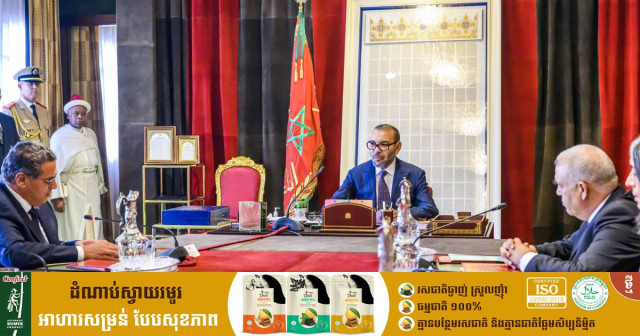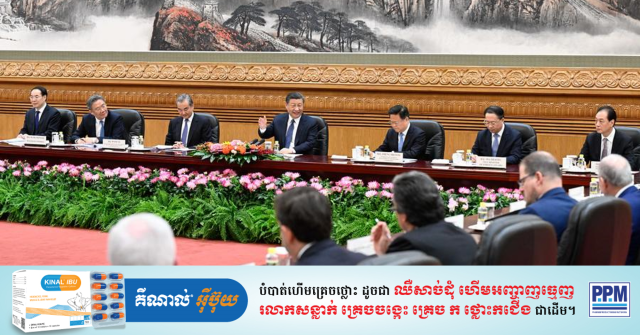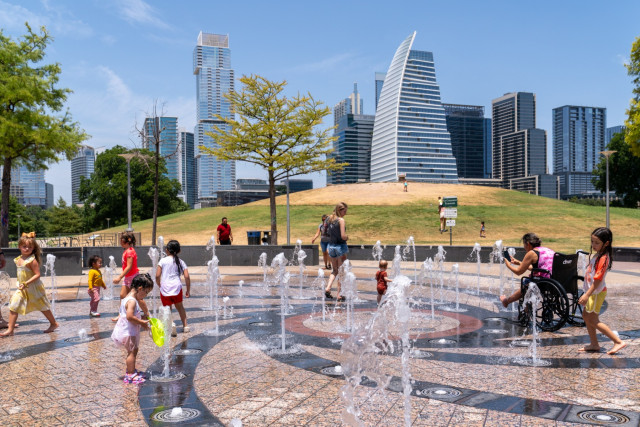The monarch, who was reportedly in France when the earthquake struck his country on September 8 but rapidly returned home, has made three public appearances since the disaster but has yet to address the nation.
Observers say that such reticence is characteristic of the king, who leads a royal house whose style is unique to the north African country and steers clear of grand public statements.
The earthquake killed close to 3,000 people in his country, with chances now fading of finding more survivors.
Shortly after the disaster, Mohammed VI appeared chairing an emergency meeting surrounded by high-ranking government and military officials.
The palace then issued a statement saying all rescue efforts were "under the orders and constant watch of his Majesty the King".
Three days later, visited a Marrakesh hospital and "inquired about the state of health of the injured" before donating blood, according to the official MAP news agency.
He chaired another meeting on September 14 at the Royal Palace in Rabat to launch a programme for lodging survivors in new homes. He made no public statements on any of these occasions.
- 'Doesn't talk' -
"He is somebody who puts in an enormous amount of work, but who doesn't talk. He's no braggart," Tahar ben Jelloun, a French-Moroccan writer, told AFP.
The monarch, who turned 60 this month, is credited with helping maintain stability in a volatile region -- in part through suppressing criticism -- as well as modernising the economy and pursuing assertive diplomacy.
"He embodies the Moroccan nation," said Luis Martinez, research director and North Africa specialist at political science school Sciences Po in Paris, describing the king as "a religious symbol in a very conservative society".
Since his coronation following the death of his father Hassan II on July 23, 1999, the monarch has retained a firm grip on economic policy, foreign affairs, and defence and security.
He has also pursued his country's modernisation with giant infrastructure and business projects.
They include the Tanger Med industrial port, the gigantic Noor solar power plant and the Tangier-Casablanca high-speed rail line, alongside the development of Morocco's automotive and aerospace industries, and more recently, green hydrogen projects and the "Made in Morocco" label.
Morocco nevertheless is at the bottom of the list of North African countries on the UN's human development index, and 10th among all African nations.
A quarter of the population cannot read or write, most of them women, according to the World Bank.
- 'Liberties retreated' -
Meanwhile, American magazine Forbes in 2015 put Mohammed VI's personal wealth at $5.7 billion.
Three years ago, French news outlets reported that he had acquired a townhouse near the Eiffel Tower in Paris for 80 million euros ($85 million at current rates).
In 2022, Mohammed VI spent 200 days abroad, according to unofficial estimates, and earlier this year spent three months in Gabon with now-toppled president Ali Bongo who is a friend.
An article published by the Economist this year said the king has been spending increasing time in the company of three brothers of German-Moroccan origin -- the Azaitars -- two of whom are mixed martial arts champions.
The monarch was staying in his Paris residence when news of the earthquake broke, according to French media including the Le Monde daily. He returned home immediately and Le Monde also noted he had recently been spending more time in the kingdom.
Political expression is restricted in Morocco. Criticism of the king, whose image is omnipresent not just in public buildings but also restaurants and cafes, is considered taboo.
Liberties "have retreated over the past 10 years", said Ahmed Benchemsi, spokesman for the North African branch of Human Rights Watch.
Reporters Without Borders has attributed spot number 144 to Morocco on its press freedom index.
"Nobody in the establishment will take any initiative without the king's assent," said Fouad Abdelmoumni, a human rights activist who had his phone hacked in 2019 and became the target of what he called "a daily campaign of denigration".
© Agence France-Presse
















